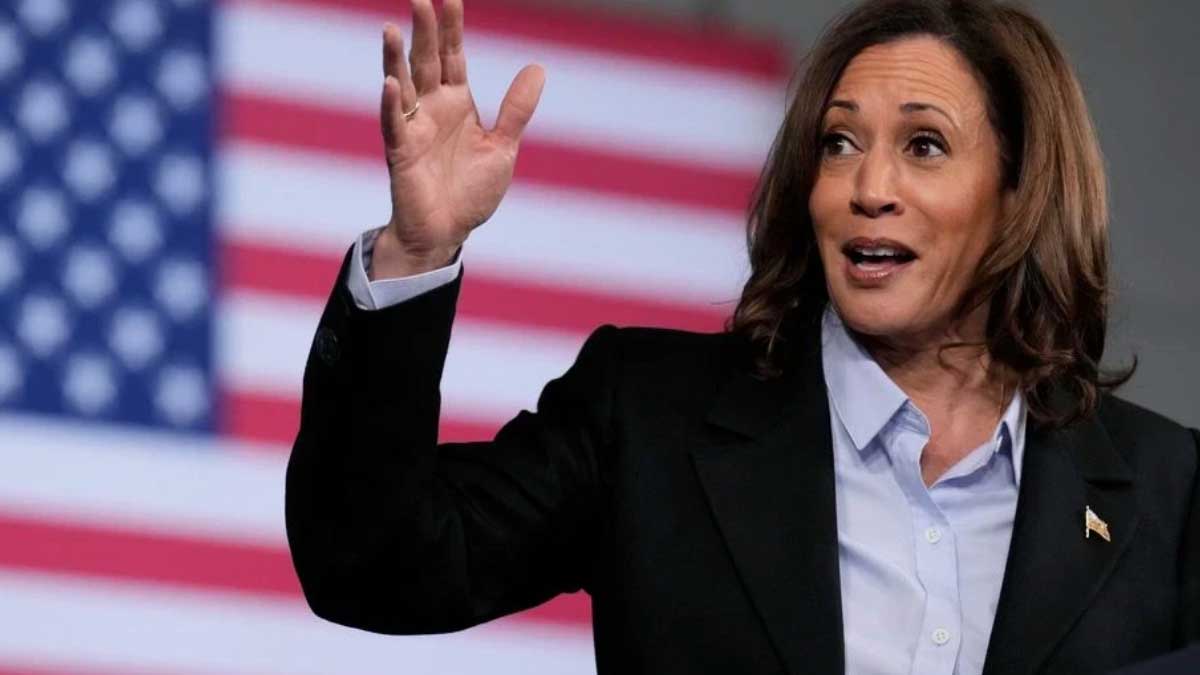- Home
- Billionaires
- Investing Newsletters
- 193CC 1000
- Article Layout 2
- Article Layout 3
- Article Layout 4
- Article Layout 5
- Article Layout 6
- Article Layout 7
- Article Layout 8
- Article Layout 9
- Article Layout 10
- Article Layout 11
- Article Layout 12
- Article Layout 13
- Article Layout 14
- Article Sidebar
- Post Format
- pages
- Archive Layouts
- Post Gallery
- Post Video Background
- Post Review
- Sponsored Post
- Leadership
- Business
- Money
- Small Business
- Innovation
- Shop
Recent Posts
North Carolina: Key Swing State in 2024 Election

As the 2024 presidential election looms, North Carolina has emerged as a crucial battleground state, drawing significant attention from both major parties. Vice President Kamala Harris could potentially make history by becoming only the second Democratic candidate to secure the state in over four decades. This potential shift reflects North Carolina’s gradual move toward the left, a trend driven by demographic changes and economic developments over the past ten years.
Polls indicate a razor-thin margin between former President Donald Trump and Harris in North Carolina. FiveThirtyEight’s polling average shows Trump leading by just 0.4 points, while RealClearPolitics reports a 0.6-point advantage for Trump. A recent Emerson College poll found Harris trailing by one point, and two Morning Consult polls from last month reported a dead heat between the two candidates. These close margins have prompted The Cook Political Report to reclassify North Carolina from “lean Republican” to a “toss-up.” The report emphasized the state’s growing competitiveness, particularly following Harris’ official entry into the race. Notably, a Cook Political Report Swing State Project survey conducted in late July and early August shows Harris leading Trump by one point, 48% to 47%. This is a significant shift from May, when Biden trailed Trump by seven points in the same survey.
The stakes in North Carolina are high. According to Nate Silver’s Voter Power Index, if Harris wins North Carolina, she would have a 96.7% chance of winning the overall election. Conversely, Trump would have a 76.6% chance of securing the Electoral College if he wins the state. Currently, Silver’s model gives Harris a 38.5% chance of winning North Carolina, which is comparable to her odds in Georgia at 37.4%. The model also suggests an 86% likelihood that North Carolina and Georgia will vote similarly, reflecting the states’ similar demographic profiles, including factors like age, income, race, education level, and voting history in recent elections.
North Carolina’s leftward shift can be attributed largely to demographic changes, particularly a population increase among voters who traditionally support Democrats. This includes a significant rise in the number of highly educated residents, particularly in the state’s “research triangle” area of Raleigh-Durham-Chapel Hill. This region, home to three major research universities—Duke University, the University of North Carolina at Chapel Hill, and North Carolina State University—has seen a 5.6% population increase since 2020. The area’s growth has been fueled by the expansion of high-tech industries and life sciences, making it the tenth-fastest-growing area in the United States, according to the Brookings Institution. Additionally, the overall percentage of North Carolinians with a bachelor’s degree has increased significantly, rising by 1.4 million since 1990, according to a study by the University of North Carolina at Chapel Hill. This demographic is increasingly leaning Democratic, further contributing to the state’s political shift.
North Carolina’s importance in the 2024 election is underscored by its 16 electoral votes, a number that increased after the 2020 census. The state now holds the eighth most electoral votes in the country, tied with Georgia. Despite this, Republicans maintain a stronghold in the state legislature, holding a supermajority in both chambers. This supermajority gives them the power to override vetoes from Democratic Governor Roy Cooper, underscoring the ongoing political tension within the state.
While North Carolina has trended more Democratic in recent years, it has only voted for a Democratic presidential candidate once since 1980, when Barack Obama won the state in 2008. This historical context highlights the significance of the upcoming election and the potential for a dramatic shift in the state’s political landscape.
Kamala Harris’ performance in North Carolina is particularly noteworthy when considered alongside her standing in other battleground states. According to a recent Bloomberg News/Morning Consult survey, Harris holds an advantage over Trump in nearly all of the seven key battleground states. The survey shows that Harris has effectively closed the gap that previously existed between Trump and President Joe Biden in these critical states. Overall, Harris leads Trump by two percentage points across the battleground states of Arizona, Georgia, Michigan, Nevada, North Carolina, Pennsylvania, and Wisconsin. In each of these states, Harris either leads Trump or is tied with him, underscoring her strong position in the race. Furthermore, Harris has gained ground in national polls, where she now leads Trump by 1.8 points on average, according to RealClearPolitics.
Biden’s victory in 2020 was secured by winning six of the seven battleground states, with North Carolina being the exception. If Harris can flip North Carolina in 2024, it could be a pivotal moment in the election, potentially determining the outcome. The state’s demographic changes, economic growth, and increasing political competitiveness make it a key focus for both parties as the election approaches.
In conclusion, North Carolina’s role in the 2024 election cannot be overstated. The state’s shifting demographics, coupled with its significant electoral vote count, position it as a critical battleground. Kamala Harris’ ability to potentially secure North Carolina could be a game-changer in the upcoming election, highlighting the importance of every vote in this increasingly competitive state. As the election draws nearer, all eyes will be on North Carolina, a state that could very well determine the next President of the United States.
Recent Posts
Categories
- 193cc Digital Assets2
- 5G1
- Aerospace & Defense46
- AI37
- Arts3
- Banking & Insurance11
- Big Data3
- Billionaires449
- Boats & Planes1
- Business328
- Careers13
- Cars & Bikes76
- CEO Network1
- CFO Network17
- CHRO Network1
- CIO Network1
- Cloud10
- CMO Network18
- Commercial Real Estate7
- Consultant1
- Consumer Tech180
- CxO1
- Cybersecurity68
- Dining1
- Diversity, Equity & Inclusion4
- Education7
- Energy8
- Enterprise Tech29
- Events11
- Fintech1
- Food & Drink2
- Franchises1
- Freelance1
- Future Of Work2
- Games141
- GIG1
- Healthcare78
- Hollywood & Entertainment186
- Houses1
- Innovation42
- Investing2
- Investing Newsletters4
- Leadership65
- Lifestyle11
- Manufacturing1
- Markets20
- Media193
- Mobile phone1
- Money13
- Personal Finance2
- Policy567
- Real Estate1
- Research6
- Retail1
- Retirement1
- Small Business1
- SportsMoney33
- Style & Beauty1
- Success Income1
- Taxes2
- Travel10
- Uncategorized8
- Vices1
- Watches & Jewelry2
- world's billionaires418
Related Articles
Trump Moves $4B Stake in Truth Social Parent, Stock Drops 6%
Donald Trump recently transferred his 57% stake in Trump Media & Technology...
By 193cc Agency CouncilDecember 20, 2024House Rejects Trump-Backed Funding Bill, Shutdown Looms
The U.S. House of Representatives rejected a new government funding bill on...
By 193cc Agency CouncilDecember 20, 2024Trump Named Time’s Person of the Year for Second Time
On Thursday, Time magazine honored Donald Trump as its “Person of the...
By 193cc Agency CouncilDecember 12, 2024Meta Donates $1 Million to Trump’s Inaugural Fund
Meta, the parent company of Facebook and Instagram, has confirmed a $1...
By 193cc Agency CouncilDecember 12, 2024















Leave a comment